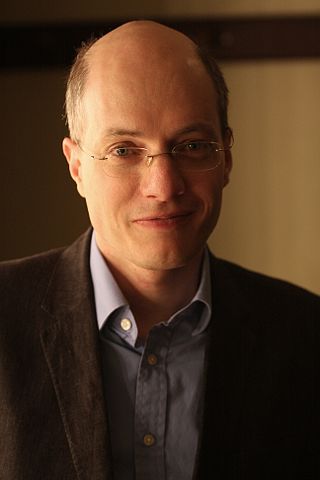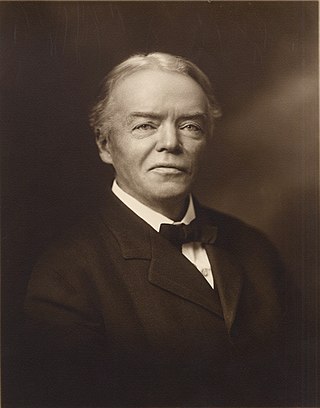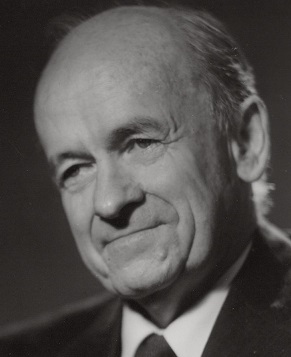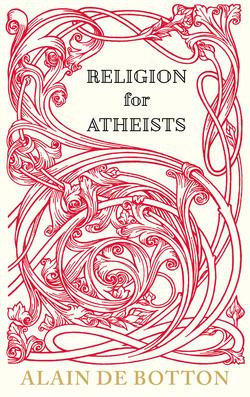
Gilles Louis René Deleuze was a French philosopher who, from the early 1950s until his death in 1995, wrote on philosophy, literature, film, and fine art. His most popular works were the two volumes of Capitalism and Schizophrenia: Anti-Oedipus (1972) and A Thousand Plateaus (1980), both co-written with psychoanalyst Félix Guattari. His metaphysical treatise Difference and Repetition (1968) is considered by many scholars to be his magnum opus.
Analytic philosophy is an analysis focused, broad, contemporary movement or tradition within Western philosophy, especially anglophone philosophy. Analytic philosophy is characterized by a clarity of prose; rigor in arguments; and making use of formal logic and mathematics, and, to a lesser degree, the natural sciences. It is further characterized by an interest in language and meaning known as the linguistic turn. It has developed several new branches of philosophy and logic, notably philosophy of language, philosophy of mathematics, philosophy of science, modern predicate logic and mathematical logic.

A ceremony is a unified ritualistic event with a purpose, usually consisting of a number of artistic components, performed on a special occasion.

Alain de Botton is a Swiss-born British author and public speaker. His books discuss various contemporary subjects and themes, emphasizing philosophy's relevance to everyday life. He published Essays in Love (1993), which went on to sell two million copies. Other bestsellers include How Proust Can Change Your Life (1997), Status Anxiety (2004), and The Architecture of Happiness (2006).

Josiah Royce was an American Pragmatist and objective idealist philosopher and the founder of American idealism. His philosophical ideas included his joining of pragmatism and idealism, his philosophy of loyalty, and his defense of absolutism.

Alain Badiou is a French philosopher, formerly chair of Philosophy at the École normale supérieure (ENS) and founder of the faculty of Philosophy of the Université de Paris VIII with Gilles Deleuze, Michel Foucault and Jean-François Lyotard. Badiou's work is heavily informed by philosophical applications of mathematics, in particular set theory and category theory. Badiou's "Being and Event" project considers the concepts of being, truth, event and the subject defined by a rejection of linguistic relativism seen as typical of postwar French thought. Unlike his peers, Badiou openly believes in the idea of universalism and truth. His work is notable for his widespread applications of various conceptions of indifference. Badiou has been involved in a number of political organisations, and regularly comments on political events. Badiou argues for a return of communism as a political force.
Alexander Nehamas is a Greek-born American philosopher. He is a professor of philosophy and comparative literature and the Edmund N. Carpenter II Class of 1943 Professor in the Humanities at Princeton University, where he has taught since 1990. He is a member of the American Academy of Arts & Sciences and Member of the American Philosophical Society, the Academy of Athens since 2018. He works on Greek philosophy, aesthetics, Friedrich Nietzsche, Michel Foucault, and literary theory.

Simon Critchley is an English philosopher and the Hans Jonas Professor of Philosophy at the New School for Social Research in New York, USA.

The University of Cambridge was the birthplace of the 'Analytic' School of Philosophy in the early 20th century. The department is located in the Raised Faculty Building on the Sidgwick Site and is part of the Cambridge School of Arts and Humanities. The Faculty achieved the best possible results from The Times 2004 and the QAA Subject Review 2001 (24/24). In the UK as of 2020, it is ranked second by the Guardian, second by the Philosophical Gourmet Report, and fifth by the QS World University Rankings.
Richard Shusterman is an American pragmatist philosopher. Known for his contributions to philosophical aesthetics and the emerging field of somaesthetics, currently he is the Dorothy F. Schmidt Eminent Scholar in the Humanities and Professor of Philosophy at Florida Atlantic University.

John Arthur Passmore was an Australian philosopher.

Joseph Zalman Margolis was an American philosopher. A radical historicist, he authored many books critical of the central assumptions of Western philosophy, and elaborated a robust form of relativism.

Stoicism is a school of Hellenistic philosophy that flourished in Ancient Greece and Ancient Rome. The Stoics believed that the practice of virtue is enough to achieve eudaimonia: a well-lived life. The Stoics identified the path to achieving it with a life spent practicing the four virtues in everyday life—wisdom, courage, temperance or moderation, and justice—as well as living in accordance with nature. It was founded in the ancient Agora of Athens by Zeno of Citium around 300 BCE.

Richard Jacob Bernstein was an American philosopher who taught for many years at Haverford College and then at The New School for Social Research, where he was Vera List Professor of Philosophy. Bernstein wrote extensively about a broad array of issues and philosophical traditions including American pragmatism, neopragmatism, critical theory, deconstruction, social philosophy, political philosophy, and hermeneutics.

The School of Life is a British multinational social media company founded in 2008 by British author and public speaker Alain de Botton. The company is headquartered in London. It publishes various materials dealing with the topics of anxiety management, emotional intelligence, relationships, work, creativity, and spirituality.

Religion for Atheists: A non-believer's guide to the uses of religion is a book by Alain de Botton published in 2012. It argues that while supernatural claims made by religion are false, some aspects of religion are still useful and can be applied in secular life and society. Religion for Atheists was published in the UK in hardback edition by Hamish Hamilton, and in the US by Pantheon. Religion for Atheists was a New York Times non-fiction bestseller, and has been widely reviewed, with mixed results.

The Department of Philosophy is an academic division in the Faculty of Arts and Humanities at King's College London. It is one of the largest and most distinguished centres for the study of philosophy in the United Kingdom.

John Jeremy Stuhr is an American philosopher who teaches at Emory University. He has written extensively about a wide assortment of philosophical figures and movements as well as a broad array of cultural problems and issues. His work is known for its lively, engaged, and direct style. He draws critically on thinkers from often separated philosophical traditions. Revealing his impatience with narrow and academic conceptions of philosophy, his writings make deep and consistent use of poetry, painting, photography, and the lyrics of contemporary music, and they exhibit a broad interdisciplinary reach across fields such as rhetoric, media studies, relativity theory, political and legal theory, cultural geography, and economics.

Scottish philosophy is a philosophical tradition created by philosophers belonging to Scottish universities. Although many philosophers such as Francis Hutcheson, David Hume, Thomas Reid, and Adam Smith are familiar to almost all philosophers it was not until the 19th century that the notion of 'Scottish philosophy' became recognized and highly regarded internationally. In the 20th century, however, this tradition declined as Scottish-educated philosophers left for England.
Self-cultivation or personal cultivation is the development of one's mind or capacities through one's own efforts. Self-cultivation is the cultivation, integration, and coordination of mind and body. Although self-cultivation may be practiced and implemented as a form of cognitive therapy in psychotherapy, it goes beyond healing and self-help to also encompass self-development, self-improvement and self realisation. It is associated with attempts to go beyond and understand normal states of being, enhancing and polishing one's capacities and developing or uncovering innate human potential.















